Nigeria's Political Transition: Assessing The New President's Challenges And Expectations

The Seal of the President of Nigeria
Governments are established in many countries around the world to ensure the political, social, and economic progress of their people. Officials elected into various positions of government are entrusted with the immense responsibility of making decisions that are in the best interest of the people they govern. Consequently, the capacity of individuals who occupy these esteemed posts in government is important to the citizens whose affairs they oversee, as the actions they take have a direct impact on their lives.
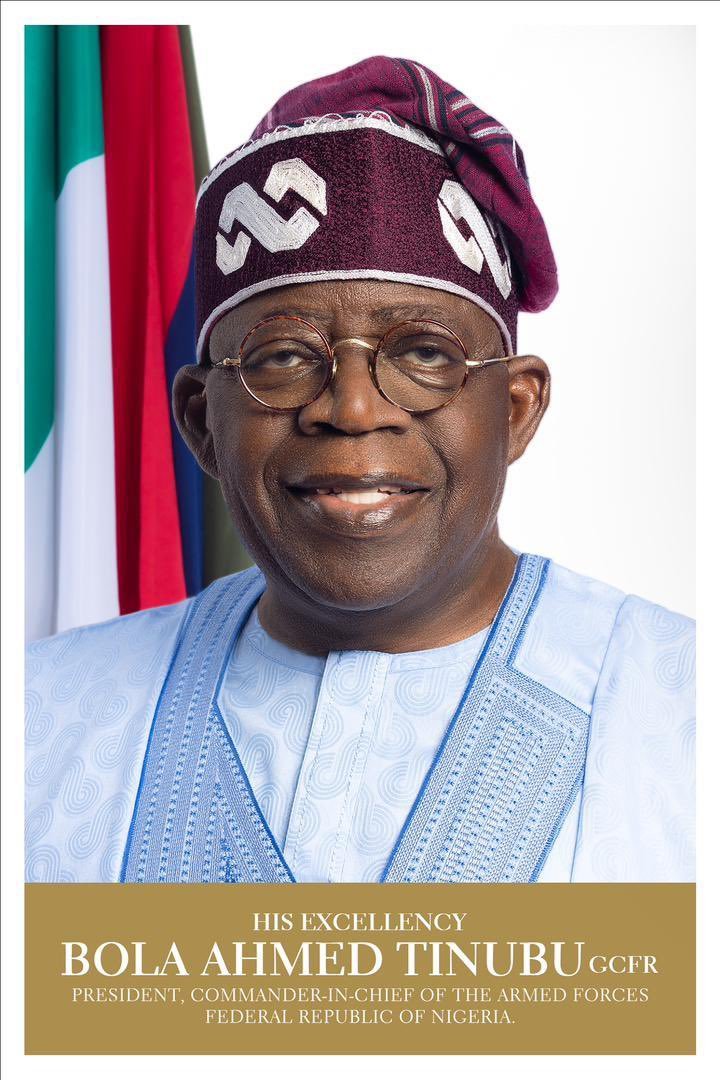
Bola Ahmed Tinubu, the current President of Nigeria
In Nigeria, elections are conducted once every four years, with the outcome either retaining current public servants seeking re-election or ushering in new officials. This year's general elections were no exception, as they produced some changes in the government, most notably in the presidency. The outcome of the exercise saw Bola Ahmed Tinubu of the ruling party (APC), emerge as the winner of the presidential election.
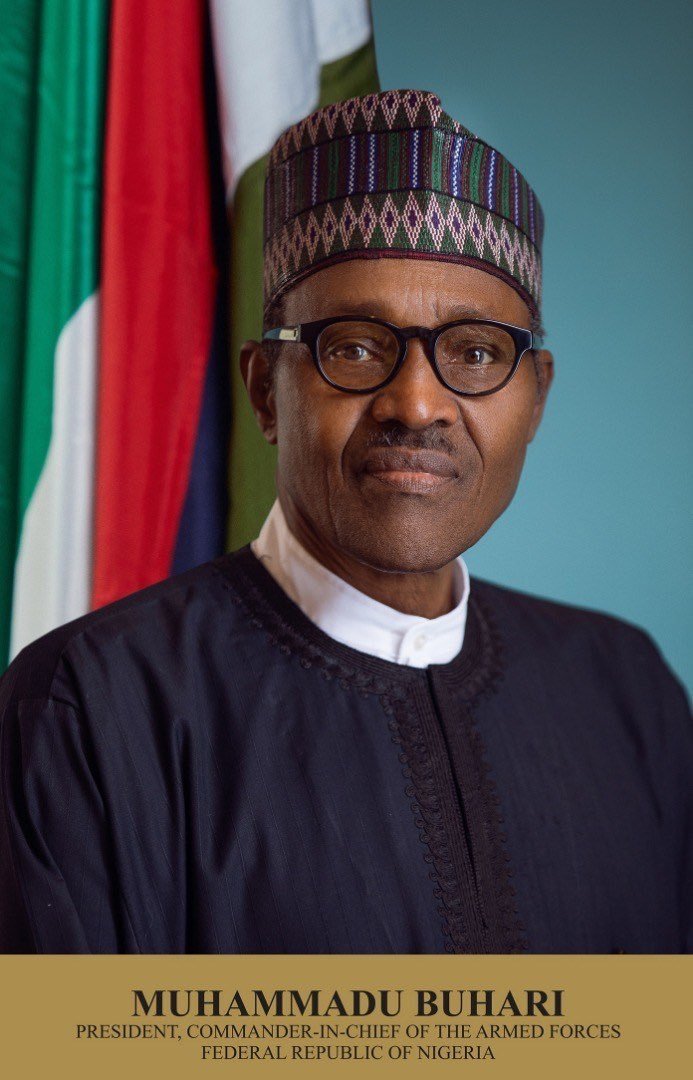
Muhammadu Buhari, the former President of Nigeria
The tenure of the former president, Muhammadu Buhari, finally came to an end last month. He served two terms in office and, before that time, briefly presided over the affairs of the country as a military Head of State in the 1980s. While in office, his administration was confronted with myriad challenges such as insecurity, inadequate infrastructure, unemployment, reduced revenue from the sale of crude oil, and emigration of local skilled manpower to foreign countries, to mention a few. However, the administration made efforts to solve these problems, with the most significant impacts seen in the areas of agriculture and critical road and railway infrastructure. The appraisal of the former president's administration elicited diverse reactions from Nigerians, with most opining that it caused more hardship for the populace.
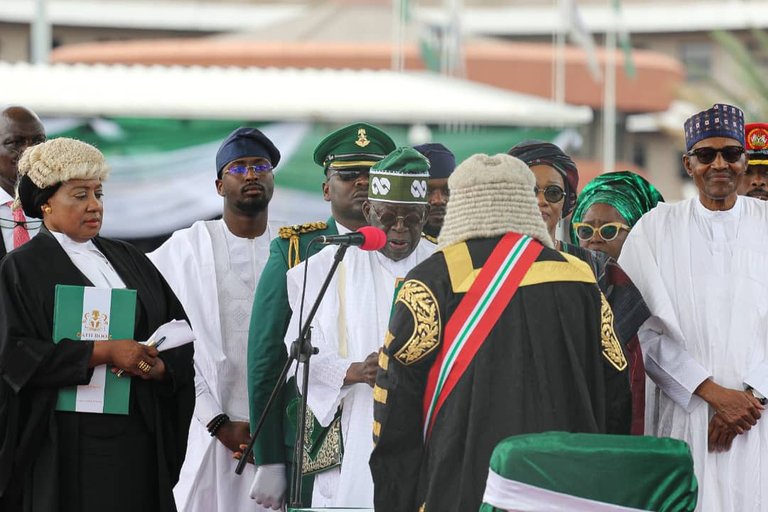
President Bola Ahmed Tinubu taking the oath of office
The new president, Bola Ahmed Tinubu, was also inaugurated into office as the 16th President of the country last month. Consequently, he will be charged with the responsibility of managing the affairs of the country for the next four years. His government faces an arduous task ahead, as it seeks ways to overcome the numerous challenges plaguing the nation and prove to Nigerians that it has the competence needed to set the country on the path of economic development.
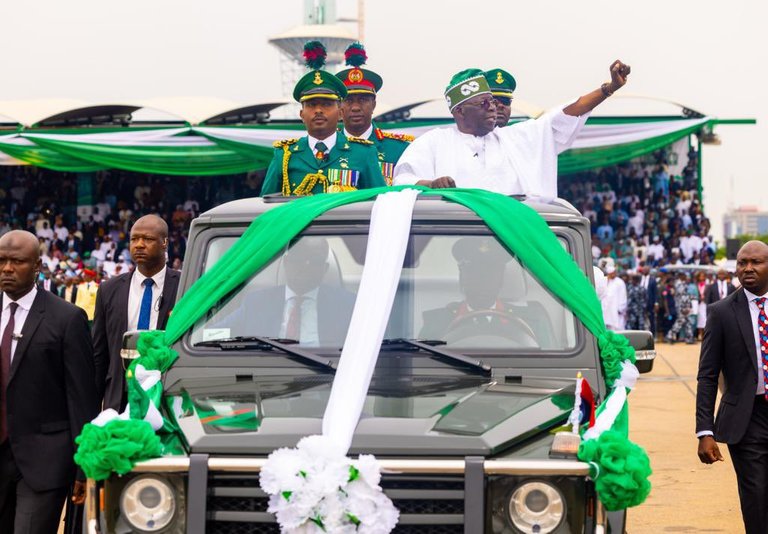
President Bola Ahmed Tinubu riding in a motorcade during his inauguration
However, the new president is not a novice in governance. Bola Ahmed Tinubu is an accountant and seasoned politician who has served as a senator and a two-term governor in Lagos State. His political career spans over three decades, and he is regarded as the most influential politician from the southwestern region of the country. Nigerians hope that his prior experience in public service will be useful in navigating and overcoming the multitude of problems that have been the bane of the country.
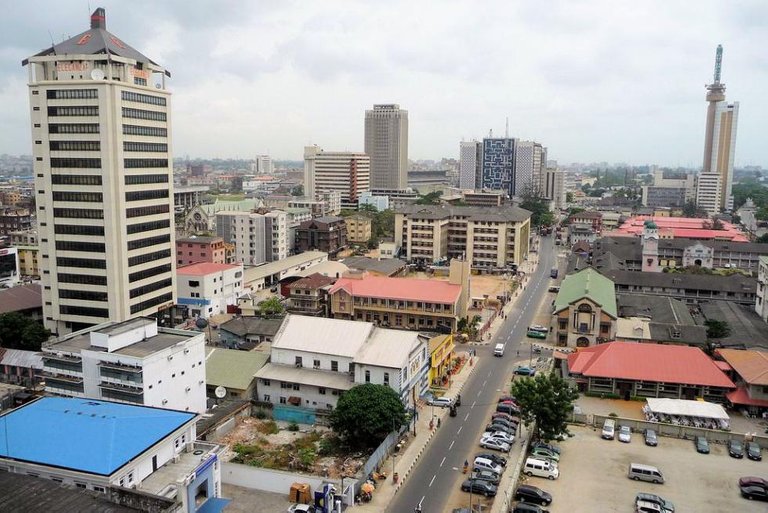
Aerial view of Lagos, the commercial capital of Nigeria
As the popular saying goes, "Change is constant," implying that whenever a change takes place, there is room for improvement and progress. As Nigerians embark on a new journey under the leadership of the new president, we hope that the rapid economic progress the country desperately needs is set i, eventually leading to prosperity and making us feel proud of our motherland.
Thanks for reading,
See you in the next post guys.
credit: click photo caption for image source
Yay! 🤗
Your content has been boosted with Ecency Points, by @udezee.
Use Ecency daily to boost your growth on platform!
Support Ecency
Vote for new Proposal
Delegate HP and earn more